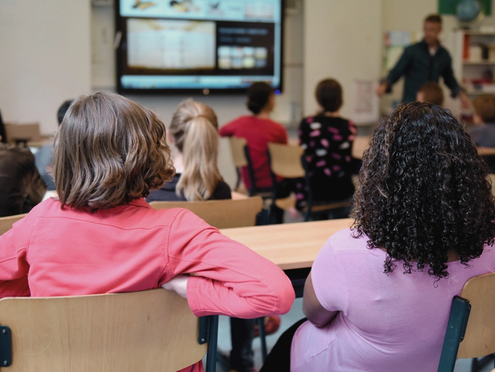Will AI tools like ChatGPT have a positive effect on education?
In my opinion, it is crucial to differentiate AI tools like ChatGPT from other AI solutions. Bedrock Learning has incorporated AI for some time, utilising algorithmic rules and logic to personalise assessment and learning. This aspect makes AI in education immensely valuable, as it can provide the right content or pose relevant questions based on data models, ultimately enhancing outcomes and learning. This aligns with the role of a teacher, who aims to optimise learning by delivering suitable content at the appropriate time.
However, the impact becomes questionable when we consider ChatGPT and similar natural language processing tools. These tools focus on the construction of written language rather than adaptivity or providing appropriate content. This raises ethical concerns regarding plagiarism, masking students' understanding of topics, and factual accuracy. It is clearly stated that ChatGPT may not always provide accurate information, which may not be understood by learners. Nonetheless, this issue mirrors how young people and adults consume online knowledge, highlighting the importance of teaching students to inquire about the reliability and truthfulness of sources. While AI can excel in personalisation and adaptivity, the ethical implications of tools like ChatGPT in education remain uncertain.
Challenges for teachers posed by AI tools
As previously mentioned, cheating, plagiarism, and exposure to misleading information are evident challenges posed by AI tools like ChatGPT. Additionally, many learners, even at the secondary school level, may struggle to comprehend the output generated by ChatGPT. Hence, it is unlikely that a significant portion of students will rely on ChatGPT to present information as their own, as they may lack a proper understanding of the content. This highlights the role of teachers in facilitating comprehension and breaking down information for learners.
Furthermore, the current output of AI tools is primarily text-based. Research indicates that learning extends beyond textual formats and requires engaging activities and various modes of interaction. Therefore, in its present state, ChatGPT is unlikely to cause significant issues for teachers. However, it is crucial to acknowledge that AI tools will evolve and become more sophisticated over time.
How ChatGPT and AI complements Bedrock Learning
As mentioned earlier, Bedrock Learning teaches thousands of words across diverse academic subjects. There is simply no way that a science teacher could track a whole year group's understanding of 128 words on the topic of cell structure at the pupil level while making sure that if "cytoskeleton" has been learned, that memory checking happens at just the right time to promote deep memory retention. AI technology employed by Bedrock allows large-scale memory checking, interleaving, and spaced learning tailored to each student. This provides teachers with confidence in ensuring that crucial subject-specific knowledge is truly comprehended by all learners.
The Impact of ChatGPT on the EdTech Sector
A noteworthy consideration is that some individuals in the EdTech sector may use ChatGPT for content production purposes. If this content is incorporated into an EdTech platform and sold, concerns arise regarding factual accuracy and knowledge reliability. It is essential to address ethical questions, determine what constitutes proprietary information, and establish reliable sources of truth. At Bedrock, we prioritise rigorous checks and balances to ensure factual accuracy and high-quality knowledge transmission to young learners. We believe that principles of good pedagogy and teaching should not be absent in quality EdTech experiences.
Moreover, while ChatGPT can generate articles, stories, and poems, it falls short in curating a comprehensive, multimodal learning journey with a logical order. ChatGPT's current output primarily focuses on text-based content, while an effective e-learning or EdTech experience involves a carefully curated curriculum designed by teachers for end-users.
The possibilities could be endless, but we need to catch up
Overall, when implemented correctly and with clear guidance that everyone can follow, the development of AI in education has the potential to be a positive force for learning, education, human knowledge, and productivity. However, at present, there are significant ethical considerations surrounding the integration of AI tools in education. The rapid pace of innovation has outpaced the development of ethical considerations, rules, and legislation. It is crucial for us to catch up and establish frameworks and safeguards before we can truly witness and harness the impact of AI tools like ChatGPT in education.
By addressing these ethical considerations and providing proper guidance, we can ensure that AI tools, including ChatGPT, are used responsibly and ethically to enhance educational experiences. The goal should be to harness the power of AI while preserving the principles of effective pedagogy and maintaining a focus on delivering accurate, reliable, and comprehensive knowledge to learners.




